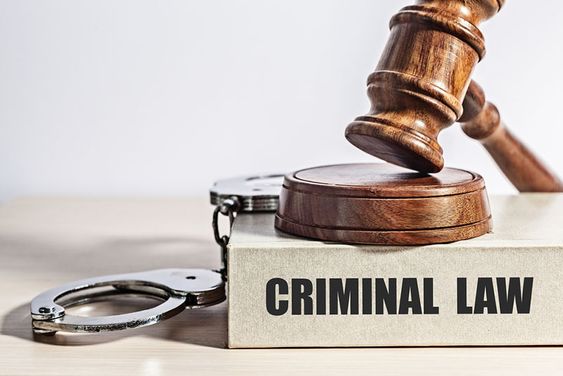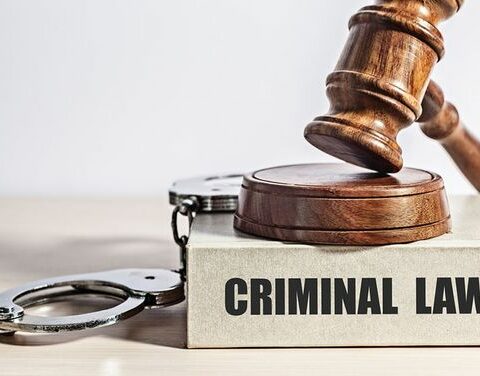Traffic criminal law encompasses a wide range of legal provisions that pertain to offenses and crimes in road traffic. This area of law covers both relatively minor administrative offenses, which typically result in fines and are dealt with under the Act on Administrative Enforcement of Traffic Regulations (WAHV) – also known as the Mulder Act – as well as more serious criminal offenses that have a much greater impact on both the driver and society. In administrative procedures, violations such as minor speed violations or failure to yield are generally not recorded on the offender’s criminal record. This distinction is important because the severity of an offense determines its legal handling and the subsequent consequences. In the case of more serious violations, such as gross speeding or dangerous driving, criminal law comes into play, leading to consequences that are not only administrative but also carry criminal sanctions. This separation in treatment reflects the need to ensure road safety while also protecting individual rights and freedoms.
Dangerous Driving (Art. 5 Road Traffic Act)
Dangerous driving is one of the most significant offenses within traffic criminal law and is considered a severe threat to road safety. This offense includes behaviors where the driver intentionally or through gross negligence creates risks for other road users. Examples include ignoring traffic rules, performing risky overtaking maneuvers, or driving erratically, which can result in accidents or near accidents. The legal system views these behaviors critically, as they not only endanger the driver themselves but also directly threaten overall road safety. Therefore, drivers who engage in dangerous driving are punished severely, with measures ranging from hefty fines to the revocation of their driver’s license, and in serious cases, prison sentences.
Traffic Accident Caused by Fault (Art. 6 Road Traffic Act)
Traffic accidents resulting from a driver’s fault are carefully examined, as they often lead to severe bodily injury, material damage, and sometimes even death. When a driver is caught acting negligently or carelessly, directly contributing to an accident, this is regarded as a criminal act. The investigation into fault often involves a detailed reconstruction of the accident, taking factors such as speed, driving conditions, and the driver’s skills into account. In legal procedures, establishing fault plays a crucial role in determining the extent of criminal liability, which can lead to criminal sanctions, including fines, community service, or prison sentences, depending on the seriousness of the situation and its consequences for those involved.
Manslaughter in Traffic (Art. 287 Penal Code)
Manslaughter in traffic is one of the most tragic and severely punishable traffic crimes within criminal law. This crime occurs when reckless or negligent behavior by a driver leads to the death of a person. Incidents that result in such a tragedy are treated with the utmost seriousness in legal terms, as the loss of human life causes irreparable harm to the affected families and society as a whole. In these cases, there is a direct violation of road safety, and an intensive investigation is conducted into the driver’s behavior, considering all circumstances. The legal consequences are severe, ranging from long prison sentences to lifetime revocation of the driver’s license.
Leaving the Scene of an Accident (Art. 7 Road Traffic Act)
Leaving the scene of an accident is considered a serious criminal act because it reflects a lack of responsibility and compassion. When a driver involved in a traffic accident leaves the scene without offering help or disclosing their identity, it is seen as an attempt to escape the consequences of their actions. This behavior not only hinders the proper and swift resolution of the accident but can also lead to further damage and delay in providing assistance to victims. Legally, such acts are heavily punished, with sanctions ranging from high fines to prison sentences, to make clear that taking responsibility in traffic is a fundamental duty.
Driving Under the Influence of Alcohol or Drugs (Art. 8 Road Traffic Act)
Driving under the influence of alcohol or drugs represents a fundamental threat to road safety, as the driver’s cognitive and motor skills are significantly impaired. This behavior is one of the most strictly punished violations within traffic criminal law. When a driver is found behind the wheel with an alcohol or drug concentration exceeding the legal limits, they not only endanger themselves but also put other road users at risk. The consequences of such a violation are severe: in addition to heavy fines and revocation of the driver’s license, criminal prosecution and prison sentences can follow in severe cases. These measures are designed to achieve both deterrence and prevention, ensuring the integrity of road traffic.
Driving During License Suspension (Art. 9 Road Traffic Act)
Driving during a license suspension is an offense that severely undermines trust in the traffic system. When a driver, who has had their license revoked due to prior offenses or criminal behavior, continues to drive, it shows a lack of respect for the imposed legal sanctions. Such behavior increases the risk of further violations and accidents, as it implies that the individual is willing to break the law despite clear warnings and punishments. Legally, this offense is strictly enforced, and in addition to repeated fines, further criminal measures are often imposed to prevent future violations.
Racing Ban (Art. 10 Road Traffic Act)
The racing ban focuses on behaviors where drivers engage in illegal street racing or reckless competitive driving. Such activities are considered a serious form of traffic crime because they endanger not only the participants’ safety but also that of bystanders and other road users. Participation in street races can lead to irresponsible speeding, dangerous maneuvers, and accidents with potentially fatal outcomes. The legal system responds to this with severe penalties, ranging from high fines to long prison sentences, to make clear that such behavior is absolutely unacceptable in a society striving for safety and order in traffic.
Joyriding (Art. 11 Road Traffic Act)
Joyriding is a crime that is not only a legal offense but also has cultural connotations within the discourse on traffic offenses. This term refers to the reckless and often temporary use of a vehicle, usually without the owner’s permission, for the purpose of experiencing excitement or thrill. While it might initially be perceived as a “game,” joyriding poses significant risks both in terms of road safety and property damage. The legislature has introduced strict measures to discourage such behavior, ranging from fines to long criminal prosecutions, in order to protect the societal values of property and safety in traffic.
License Seized (Art. 164 Road Traffic Act)
When the authorities decide to seize a driver’s license, this is often accompanied by a clear message that the individual has behaved seriously misbehaving in traffic. The revocation of the driver’s license is a measure that is not only punitive but also preventive, aiming to prevent future violations. This measure is used when a driver repeatedly or in such a manner breaks traffic rules that it is deemed unacceptable for them to participate in traffic. In addition to the license revocation, further sanctions such as fines or prison sentences may be imposed, depending on the severity and frequency of the violations.
Unknown Driver
A situation where the driver remains unidentified after a traffic accident presents a unique challenge in criminal law. This offense occurs when a driver involved in an accident leaves the scene without revealing their identity, making it difficult to trace the responsible party. This behavior is considered very serious, as it not only complicates the resolution of the accident but also significantly reduces the chances of adequate compensation for the victims. Failure to identify oneself leads to intensive investigative efforts by the authorities and results in heavy criminal sanctions, aimed at discouraging such behavior in the future.
Speeding (Exceeding Speed Limit by 30 km/h or More)
Exceeding the legal speed limit by 30 km/h or more is considered a serious violation within traffic criminal law. This type of violation increases the risk of severe accidents, as high speeds reduce the driver’s reaction time and significantly increase the impact of any collision. In addition to the direct risks for the driver, such speeding violations also pose a threat to other road users. The legal consequences are therefore strict: in addition to hefty fines, further sanctions such as temporary or permanent revocation of the driver’s license may follow to ensure road safety.
Driving Without a License
Driving a vehicle without a valid driver’s license is an offense considered very serious within traffic criminal law. This violation not only disregards legal requirements but also indicates that the driver may lack the necessary skills to navigate complex traffic situations safely. The absence of a license means there is no proof that the driver has passed the required driving tests and theoretical exams, which increases the risk of traffic accidents. For this reason, driving without a license is harshly punished, with sanctions ranging from high fines to the imposition of a driving ban, and in some cases even criminal prosecution, to ensure road safety and the integrity of the licensing system.



